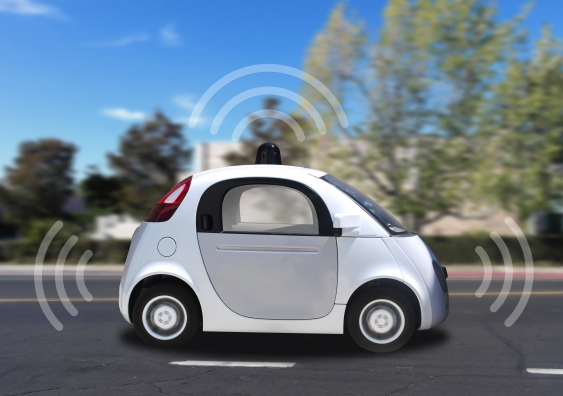Never mind car-jacking, watch out for car-hacking
PhD candidate Chuka Oham is researching how to improve the security of self-driving vehicles so passengers will be protected from cyber threats.
PhD candidate Chuka Oham is researching how to improve the security of self-driving vehicles so passengers will be protected from cyber threats.

If your computer is hacked you risk losing your files or perhaps even your money but if your self-driving car is hacked you could risk your life.
Hackers can trick self-driving cars into thinking an object is in front of them, causing them to be immobilised, or they can take control of key systems such as the brakes or accelerator.
Chuka Oham, a PhD candidate in UNSW's School of Computer Science and Engineering, is researching how to improve the security of self-driving vehicles so passengers will be protected from such cyber threats.

UNSW PhD candidate Chuka Oham
“Some years ago expert hackers were able to control a vehicle from their home and even brought the vehicle to a halt. Though a voluntary test subject, the driver was still scared to death,” says Oham.
Autonomous vehicle safety and security will be key topics at the upcoming 23rd World Congress on Intelligent Transport Systems being held in Melbourne in October; and Oham is looking forward to attending the Congress, having won a place as a delegate via a national essay competition.
A trial of the world’s first self-driving taxis began in Singapore last month, Google self-driving vehicles are being tested on US streets and Tesla, Daimler and Ford all have autonomous cars in the pipeline.
However even though these vehicles are making the driving decisions, in any trial there is always an expert present.
“Self-driving cars can’t go beyond this testing stage until the safety of passengers can be assured,” says Oham.
Remotely hacking into a driverless car’s control system could be a temptation for those with criminal intent or seeking to cause terror.
“Security for autonomous vehicles means looking at the possibility of identifying all possible sources of cyber threats to the vehicle and then creating security solutions,” he says.
Oham’s essay examined how autonomous and connected vehicle technology can result in significant improvements to transport systems.
He argued that this technology can optimize the flow of traffic by minimizing congestion, and can lead to a significant reduction in road fatalities.
“This is because research has shown that human error is the main cause of road accidents," he says.
Oham says the congress will provide the opportunity to listen to global experts, experience live vehicle demonstrations and improve his knowledge.
And hopefully, with the help of Oham's research, the possibility of taking a ride – safely – in a driverless car will soon be one step closer.